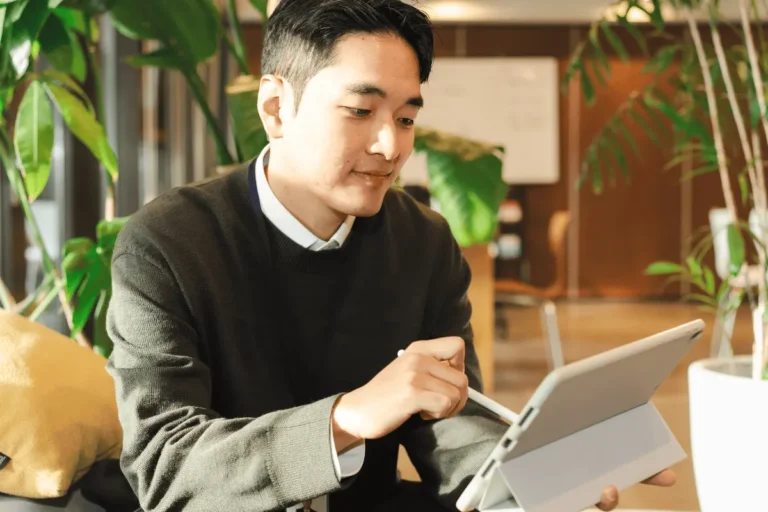By their very nature, critical incidents in the workplace can be overwhelming and traumatic. They can also trigger snap decisions out of fear, panic, and a sense of helplessness. That’s why employers need to put a post-incident support plan in place in advance. Ideally, the plan includes the ability to tap into EAP services (or those of an EAP alternative). But, how do you know if your EAP is providing best-practice support after critical incidents?
Hint: If your EAP cannot provide safety support that helps you connect with your people, confirm their safety, keep them updated as events unfold, and ensure that post-event care is appropriate and easy to access, you’re missing out. And if your EAP provider suggests immediate on-site psychological debriefing, this is not best practice – and it hasn’t been for 10-20 years.
To help you understand best practice post-incident support, this blog post aims to:
- Define work-related critical incidents;
- Explain what’s considered best-practice post-incident support;
- Remind you why psychological debriefing is not recommended;
- Summarise why psychological first aid (PFA) is the preferred option; and
- Share examples of critical incident support offerings.
What are work-related critical incidents?
The WHO and UNHCR define a critical incident as “a sudden, unexpected and overwhelming event, that is out of the range of expected experiences“. A critical incident may make someone “feel intense fear, helplessness, horror and completely out of control. After such an abnormal event, most people experience reactions that are disturbing and difficult to accept.”
In the workplace context, different EAPs and support providers define “critical incidents” differently. For some, they are defined as “any request for external on-site support following a workplace event”. For others, the definition is reserved only for the most serious workplace events that have received executive-level approval for on-site support by an external provider.
For our purposes at Sonder, we define a critical incident as any event occurring in the workplace, or arising out of the course of work, that has the potential to cause trauma to the affected members.
Examples of work-related critical incidents include:
- Accidents;
- Natural disasters;
- Customer violence;
- Armed robbery;
- Attempted suicide in the workplace; and
- Death in the workplace. (A death of an employee offsite would also be considered a critical incident.)
Interestingly, across 10,000+ active member support cases from January to March 2023, we observed the following trends across the cases that involved critical incidents:
- Mental health concerns are still the primary cause of critical incidents (57.6 per cent), followed by safety-related concerns (39.9 per cent).
- Safety-related critical incidents are on the rise, with a 54 per cent increase in the percentage of safety-related critical incidents.
- Police incidents are also on the rise, increasing from 15 to 27 per cent of all our critical incidents.
What’s considered best practice EAP support after critical incidents?
Disclaimer: These principles also apply to EAP alternatives. Sonder is an EAP alternative.
✅ Best practice: safety support and welfare checks
The priority after a critical incident is to confirm the safety of your team members. A best-practice employee support service integrates safety intelligence technology with human care and support so you can connect with your people, confirm their safety, and keep them updated as events unfold. If you cannot get in touch with your team members via technology, a best-practice service should also offer the ability to conduct (or coordinate) essential welfare checks.
Modern safety support services should also provide ongoing preventative safety notices, opt-in safety monitoring, and emergency response care that gives you peace of mind that you are providing the best safety support for your people.
✅ Best practice: medical care in addition to mental health care
Critical incidents can cause new medical conditions and/or exacerbate existing medical conditions. But, it’s not reasonable to expect a traditional EAP service to triage medical conditions if their people are not trained medical clinicians. That’s why it’s important to look for a best-practice support provider that offers a holistic service that adds medical care to mental health care.
Did you know?
- In our sample cohort of 10,000+ active member support cases, more people reached out for medical support than mental health support?
- In addition, 72 per cent of these cases had two or more conditions present, and nearly 20 per cent had five or more conditions present.
❌ Not best practice: psychological debriefing
For years, well-intentioned employers keen to exercise their duty of care have agreed to pay expensive rates for a psychologist to be sent onsite to support their employees after traumatic events.
Unfortunately, this approach may have jeopardised employee health, and increased organisational risk, because the evidence says psychological debriefing may do more harm than good and most employees should not need direct psychological support in the first instance.
Psychological debriefing (including critical incident stress debriefing to reconstruct the traumatic event) is not the best clinical practice and employers should stop paying for it.
References: World Health Organization, The Journal of Nervous and Mental Disease, Journal of Traumatic Stress, Cochrane, British Journal of Psychiatry, Australian and New Zealand Journal of Psychiatry
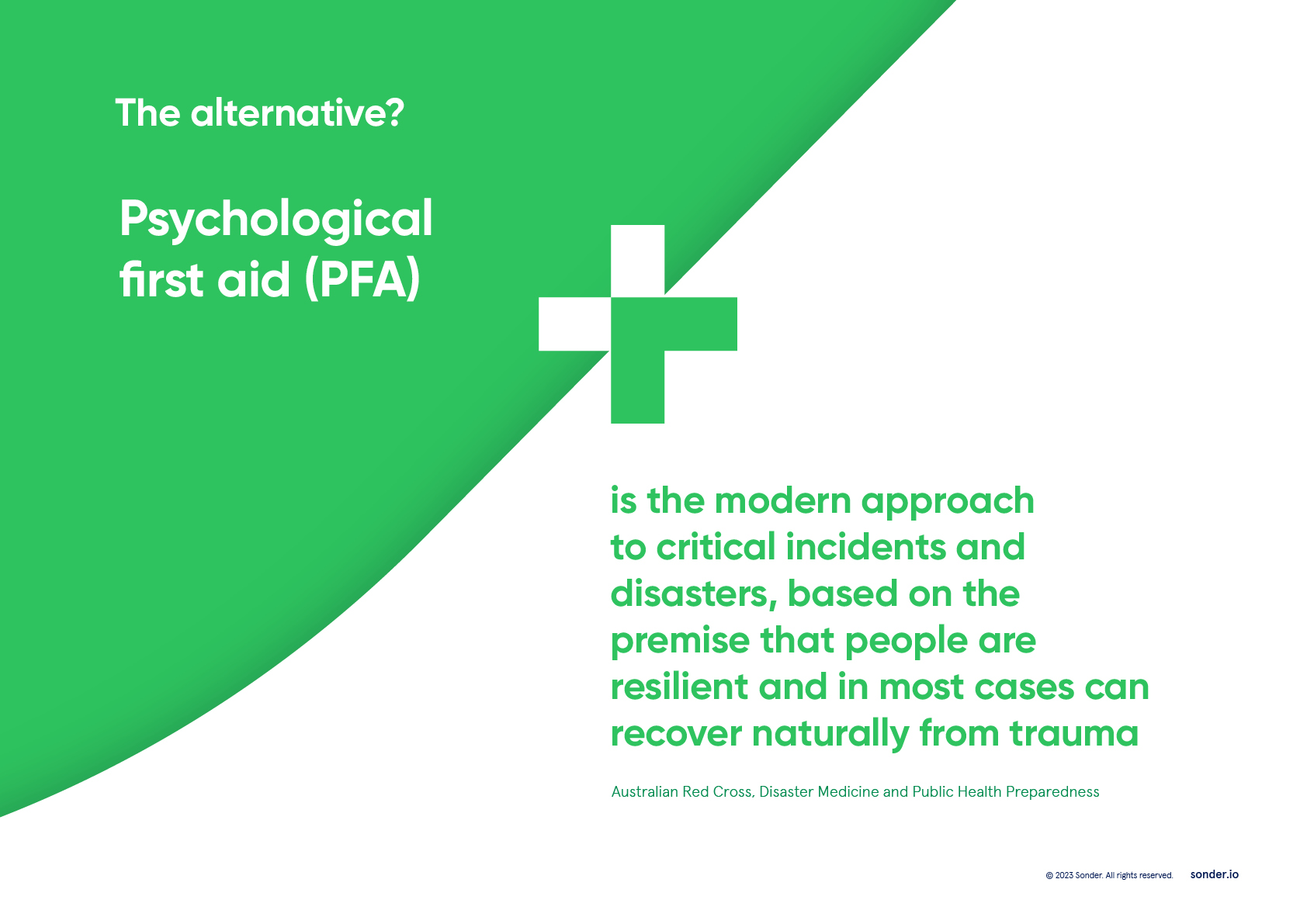
✅ Best practice: psychological first aid (PFA)
PFA is the best practice approach to critical incidents and disasters. Its premise is that people are naturally resilient and in most cases can recover naturally from trauma.
This involves helping people feel safe, connected to others, calm and hopeful, and ensuring access to physical, emotional and social support.
It aims to reduce initial distress, meet current needs, promote flexible coping and encourage adjustment – and it can be delivered by colleagues and managers.
PFA can be applied by managers and colleagues. It does not reliant on an accredited psychologist or qualified counsellor.
The five principles of PFA are:
- Ensuring safety;
- Promoting calm;
- Encouraging self-efficacy;
- Creating connectedness; and
- Instilling hope.
“People are more resilient than we have been taught to think that they are. After a potentially traumatic event, most people will recover naturally using their own networks, following their own timeline and without the need for formal mental health intervention. A very small number of people may benefit from clinical support and this is best provided in a collaborative style allowing them to choose how, when, and who they seek help from.”
Dr Jamie Phillips, MB ChB, AFCHSM, DIMC RCS(Edin), MRCGP(UK), FACRRM(EM), Medical Director at Sonder
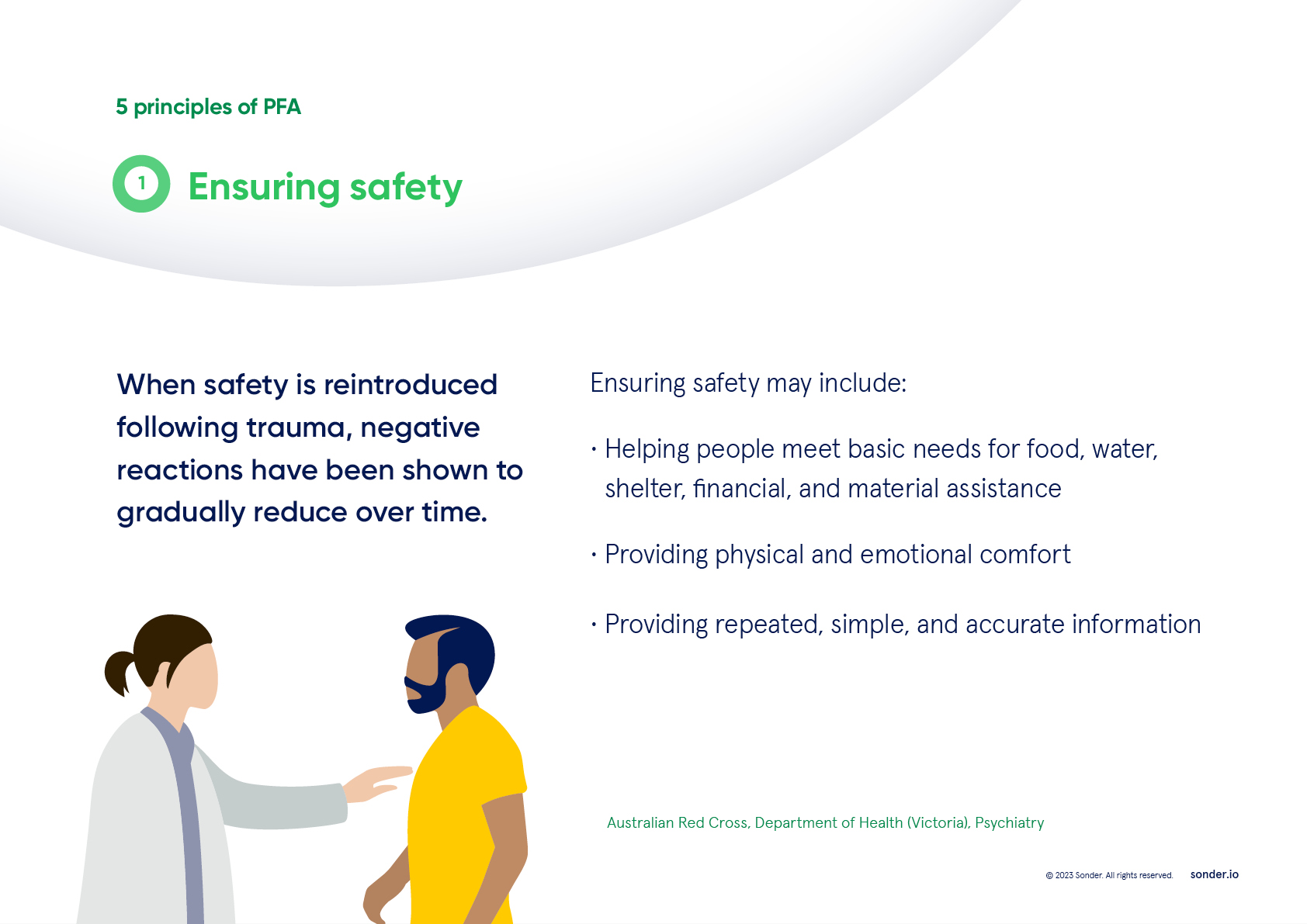
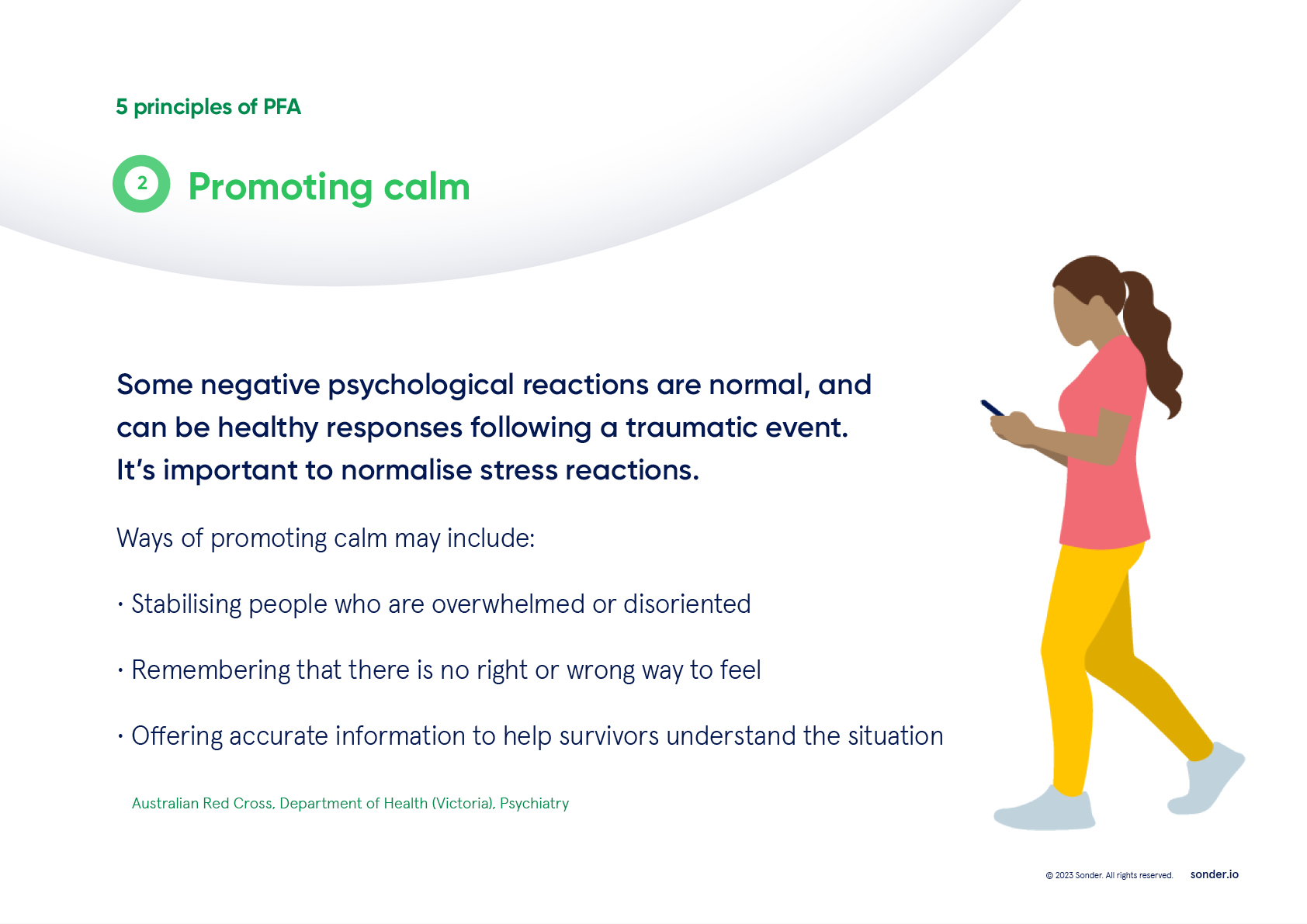
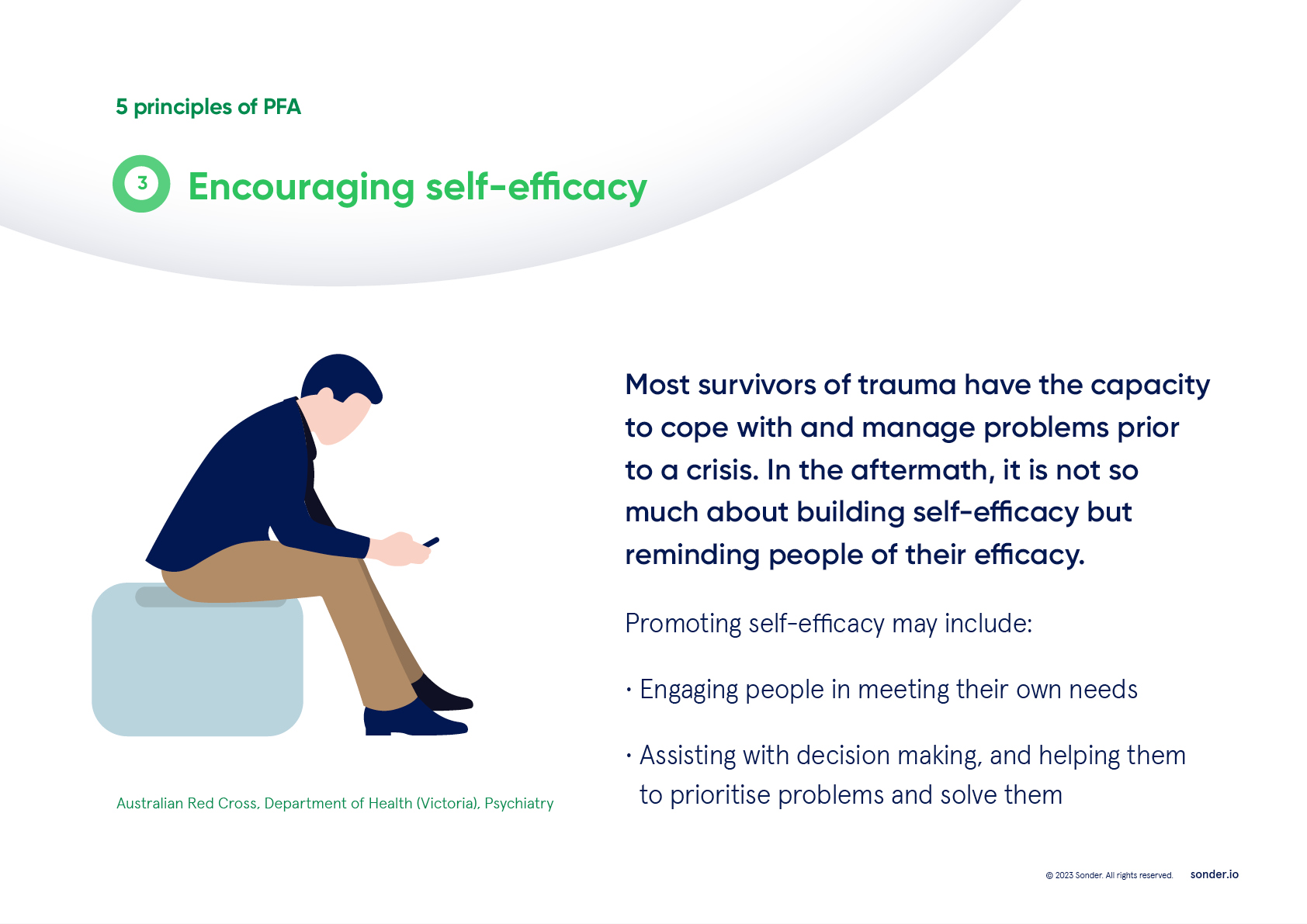
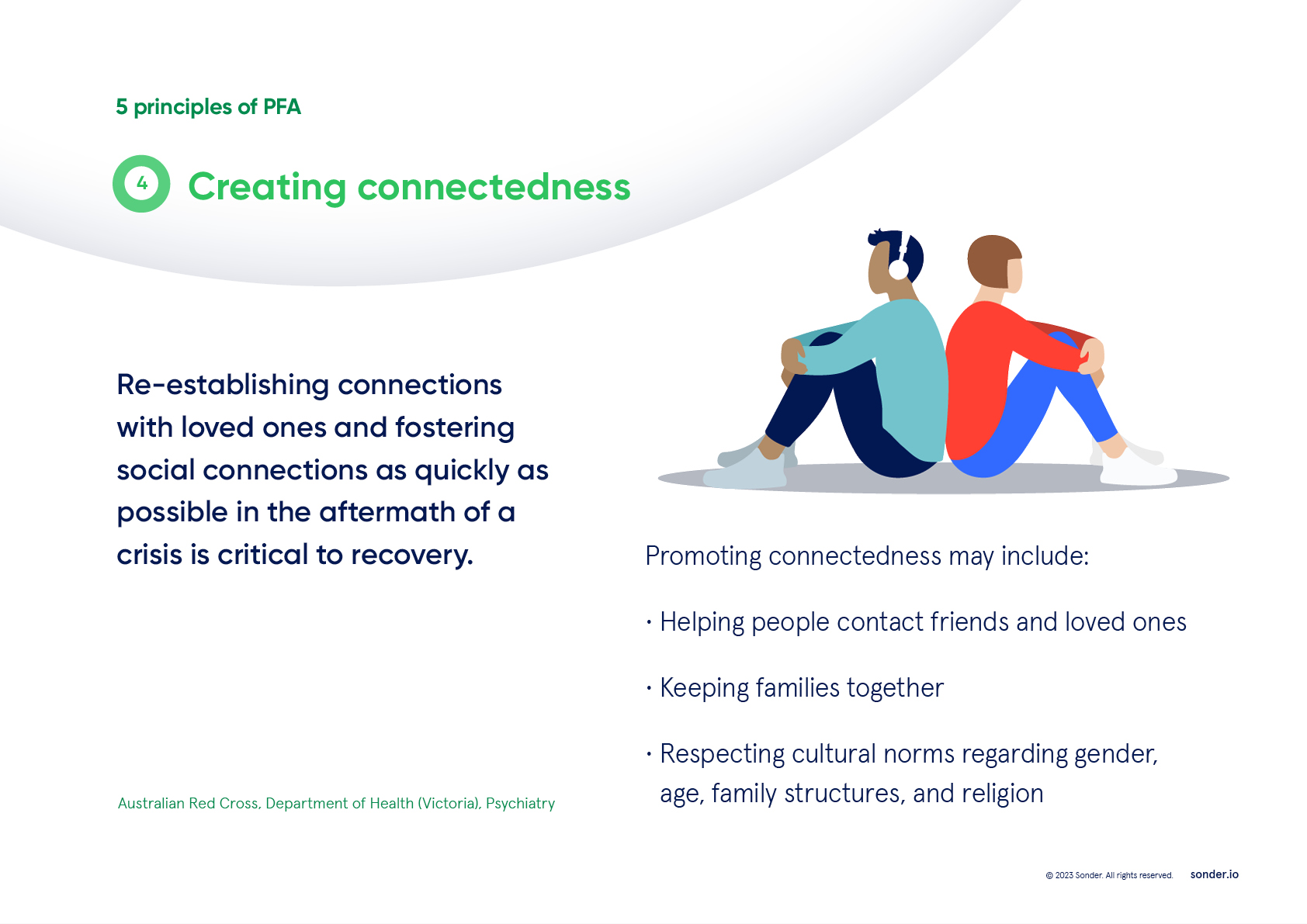
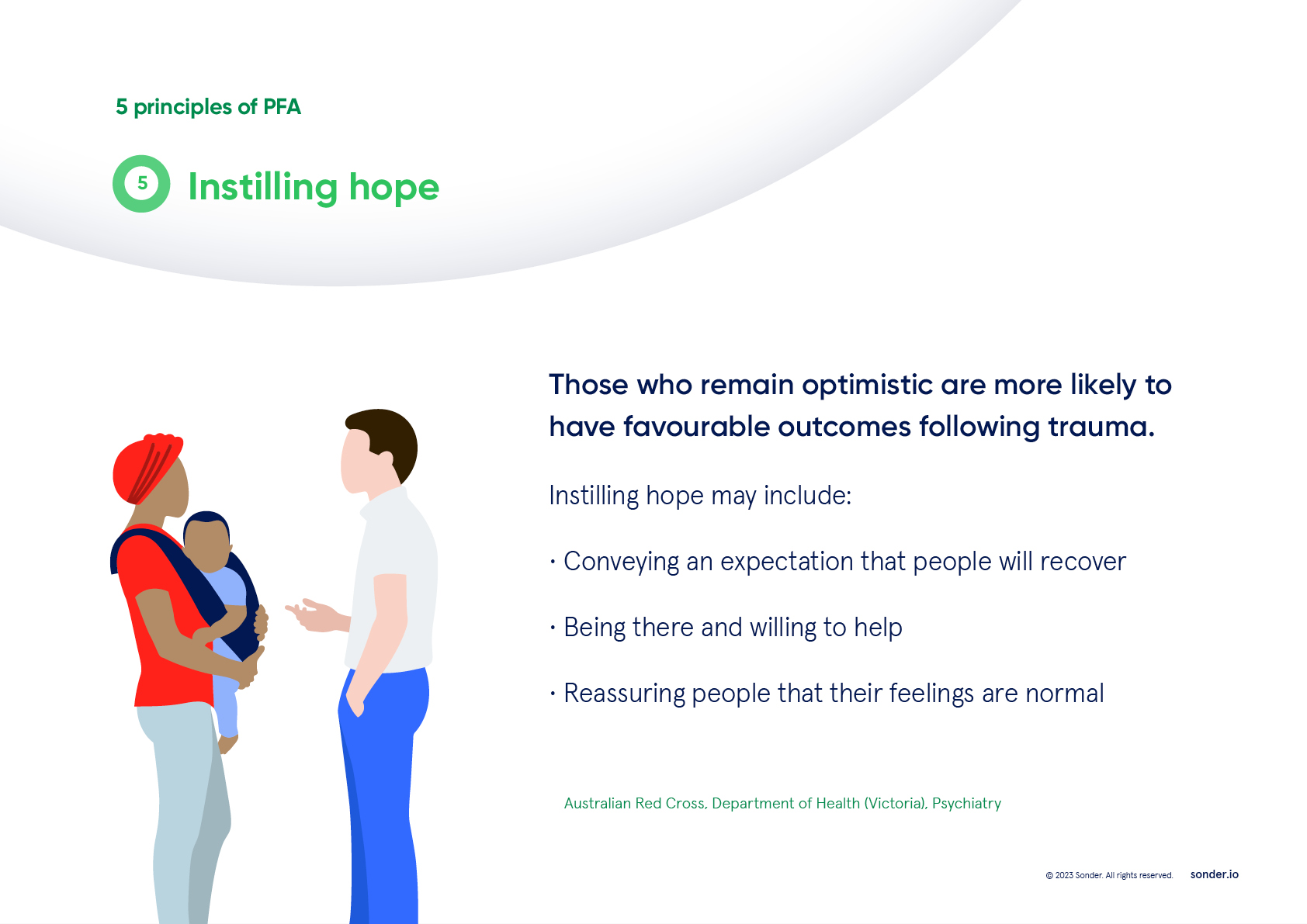
✅ Best practice: ‘always on’ support
People are not always open to receiving support immediately. There can be too much to absorb and it’s not uncommon for people to need time to process everything they saw and/or experienced before reaching out to talk to someone.
We regularly help employees and students who contact us for support not just days after traumatic events, but sometimes weeks, or even months, or even years later.
Kim Powell, our Director of Nursing, walks us through an excellent example here:
What critical incident support does Sonder offer?
Sonder is an EAP alternative that provides more (and broader) support than a traditional EAP.
This table helps to illustrate how our safety, medical, and mental health support compares to some other EAPs, in the context of critical incidents in the workplace:

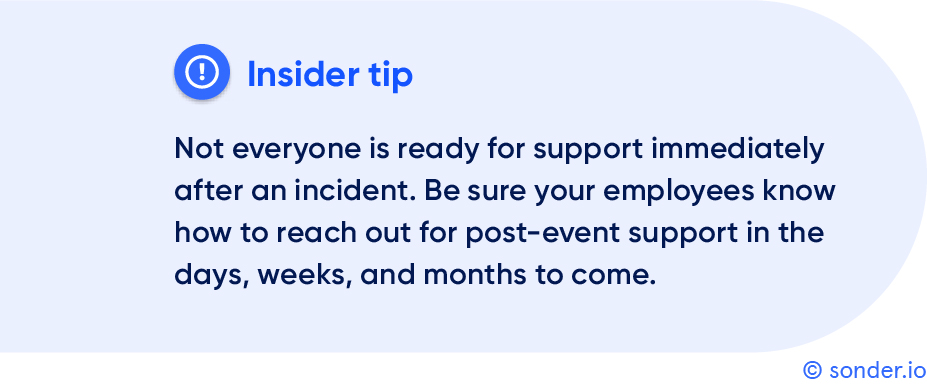
Want to learn more?
For more information about how Sonder can help you rethink your employee and/or student support, we invite you to contact us here.
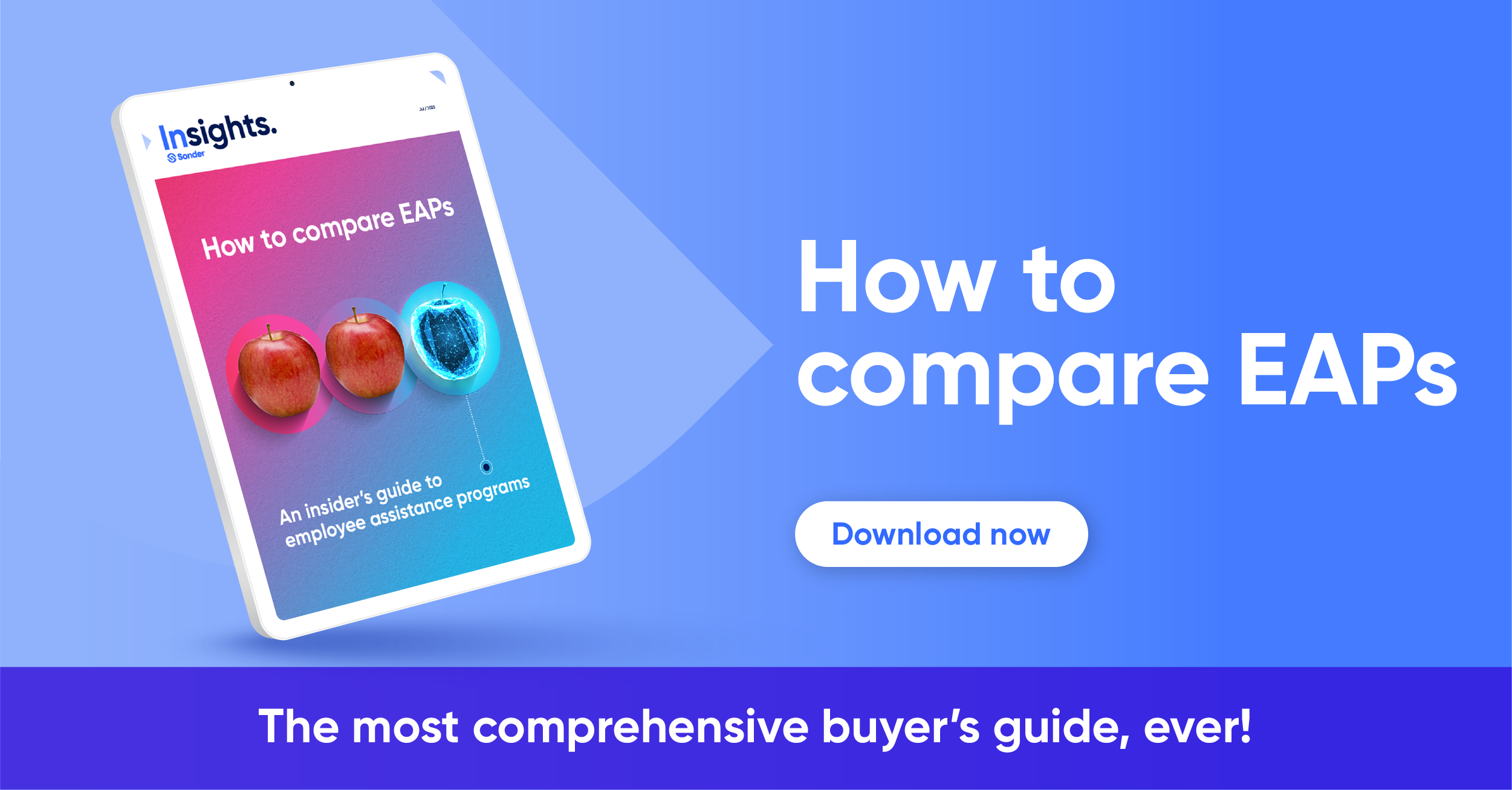
Download our deep-dive report
Today’s blog post shares excerpts from our new ‘How to compare EAPs’ guide, which we invite you to download here. This insider’s guide to employee assistance programs will help you:
- Define a typical EAP offering
- Summarise why employee uptake has been low
- Discover what makes EAP alternatives different
- Learn how to compare vendor offerings
- Gain insider tips and statistics
- Write a convincing business case
About Sonder
Sonder is a technology company that helps organisations improve the wellbeing of their people so they perform at their best. Our mobile app provides immediate, 24/7 support from a team of safety, medical, and mental health professionals – plus onsite help for time-sensitive scenarios. Accredited by the Australian Council on Healthcare Standards (ACHS), our platform gives leaders the insights they need to act on tomorrow’s wellbeing challenges today.



